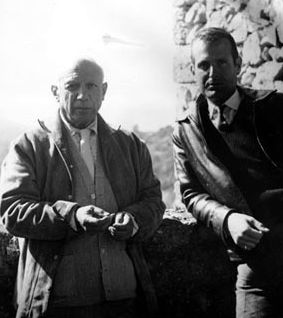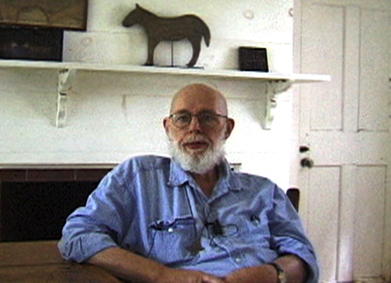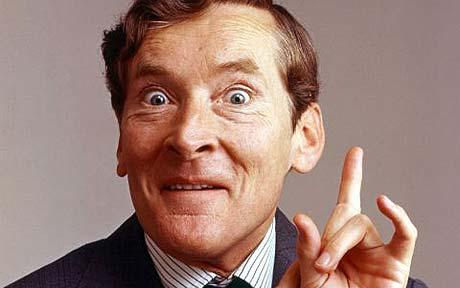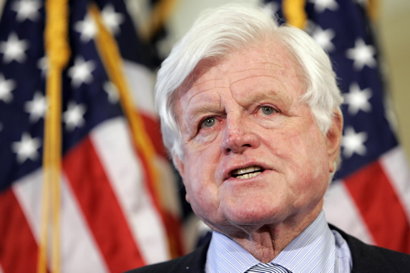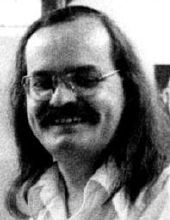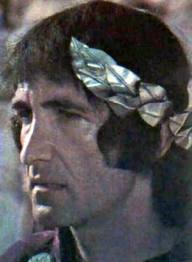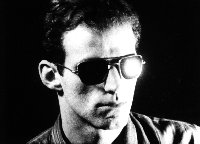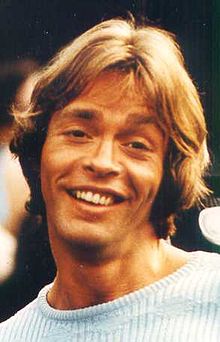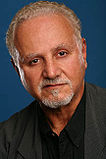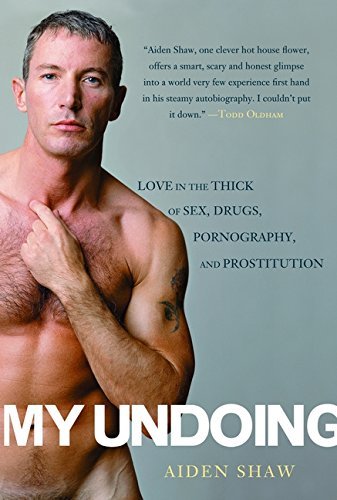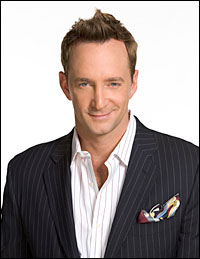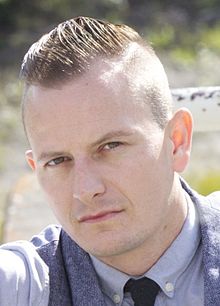|
presents THIS DAY IN GAY HISTORY based on: The White Crane Institute's 'Gay Wisdom', Gay Birthdays, Gay For Today, Famous GLBT, glbt-Gay Encylopedia, Today in Gay History, Wikipedia, and more …
Collected by Ted February 22 [{(o)}]|[{(o)}]|[{(o)}]|[{(o)}]| [{(o)}]|[{(o)}]
Washington's letters state that he was less than thrilled with marital life ("not much fire between the sheets") and preferred the company of men — particularly the young Alexander Hamilton, whom he made his personal secretary — to that of women, as his letters attest. His concern for his male colleagues clearly extended to their personal lives. This was especially true of Hamilton, who he brought with him to Valley Forge, giving Hamilton a cabin to share with his then-lover, John Laurens, to whom Hamilton had written passionate love letters which are still extant. Washington's passion was reserved for his work and for the men with whom he served closely, notably Hamilton and the Marquis de Lafayette. When Hamilton was a young soldier — later to be made Secretary of the Treasury by Washington — he was engaged in relationships with other men, as love letters he sent during the Revolutionary War prove. Historians assert that passionate same-sex friendships were normative in the 18th century. At the same time, however, sodomy and open homosexuality were punishable by imprisonment, castration and even death, both in and out of the military. While some have tried to make the case for Washington being gay predicated on his special friendships, there's nothing in his papers that could be considered proof. However, if nothing more, Washington was certainly gay-friendly. The most succinct evidence for this was Washington's clear "Don't Ask, Don't Tell" policy when it came to same-sex coupling among his regiments at Valley Forge. Renowned gay historian Randy Shilts makes the case for Washington's ever-pragmatic as well as compassionate approach to same-sex relationships in "Conduct Unbecoming: Gays and Lesbians in the U.S. Military." Shilts details how Washington merely signed the order for discharge of a soldier caught in flagrante with another soldier, and suggests that if Lt. Col. Aaron Burr had not forced the issue, the soldier might have remained at Valley Forge instead of being the first documented case of a discharge for homosexuality in the Continental Army on March 15, 1778 at Valley Forge. The soldier was court-martialed by Burr, but that was the extent of it. Washington did not flog him, imprison him or, as Jefferson had required as part of Virginia law as punishment for sodomy, have him castrated. Washington could even have had the soldier executed. He did none of these things. The soldier just walked away. What makes this so stunning and an irrefutable proof of Washington's leniency on homosexuality in the military is the context. When Lt. Gotthold Frederick Enslin was drummed out of the corps (literally, because being discharged dishonorably from the military was a dramatic affair that included a solemn drum beat, a tearing of the uniform and a breaking of the sword over the head of the discharged soldier) for homosexuality, it seems that Washington signed the order for discharge more because the case involved fraternization below rank. According to military documents, Enslin had been caught having sexual relations with a private - John Monhart – by Ensign Anthony Maxwell, and Washington frowned upon fraternization among the ranks. Monhart was neither court-martialed nor discharged. That Washington normally looked the other way with same-sex couples is most obvious in his dealings with Maj. Gen. Frederich Wilhelm von Steuben, the Prussian military genius he enlisted to help him at Valley Forge. Von Steuben arrived two weeks before Enslin's discharge and arrived with his young French assistant, Pierre Etienne Duponceau, who was presumed to be his lover, in tow, making Enslin's subsequent discharge ironic. Von Steuben is perhaps the best-known gay man in American military history. Although his sexual orientation is rarely mentioned, his role in winning the Revolutionary War was incomparable and second only to Washington's own. But Von Steuben came to Valley Forge as a known homosexual: he had been implicated in relationships with boys and young men and had been expelled from the court of Frederick the Great for homosexual behavior and was on the verge of being prosecuted when he left Germany for France. Von Steuben's relationship with Washington was close and there were no conflicts with Washington over von Steuben's sleeping arrangements at Valley Forge with his young Frenchman, Duponceau. Over the decades of his military service, Washington spent his most emotional and life-altering time with other men. He certainly knew of the relationships between Hamilton and Laurens, von Steuben and Duponceau and yet brought none of them up on charges and historical record confirms that these men were indeed lovers.
1857 – The first Boy Scout, Lord Baden Powell was born (d.1941). The British Army lieutenant-general, Baron and writer is considered the founder of the International Scouting Movement through the publication of his book "Scouting for Boys", published in 1908. Scouting is usually considered to have started on 1 August 1907 with a camp run by Robert Baden-Powell on Brownsea Island. Thereafter Baden-Powell began promoting Scouting in Britain, and Scouting for Boys, the first Scout handbook, appeared in six fortnightly installments in a boys' magazine starting in January 1908. Boys began forming Scout patrols and flooding Baden-Powell with requests for assistance. The Scouting movement developed rapidly from here, first through the British Empire, and shortly afterwards around the world. Robert Baden-Powell's sexuality has been brought into question by his principal modern biographers, who have found a great deal of evidence indicating he was attracted to youthful men and to boys. While early biographies of Robert Baden-Powell tended towards sanctifying him, two important modern biographies, by Michael Rosenthal of Columbia University and professional biographer Tim Jeal, have reached the conclusion that he was probably a repressed homosexual. Baden-Powell "...consistently praised the male body when naked. At Gilwell Park, the Scouts' camping ground in Epping Forest, he always enjoyed watching the boys swimming naked, and would sometimes chat with them after they had just 'stripped off.'" Jeal cites a revealing account by Baden-Powell of a visit to Charterhouse, his old public school, where he stayed with a bachelor teacher and housemaster who had taken large numbers of nude photographs of his pupils. Baden-Powell's diary entry reads: "Stayed with Tod. Tod's photos of naked boys and trees. Excellent." In a subsequent communication to Tod regarding starting up a Scout troop at the school, Baden-Powell mentions an impending return visit and adds: "Possibly I might get a further look at those wonderful photographs of yours." (According to R. Jenkyns, the album contained nude boys in "contrived and artificial" poses.) However Jeal also shows that paintings of nude boys were regarded as art, being hung in the Royal Academy each year without causing particular stir. Also Tod's photo's were accepted by parents and school authorities until the sixties, when they were destroyed. Baden-Powell's admiration of the male body was physical, as being the best example of the beauty of nature, and with that of God, the creator: "A clean young man in his prime of health and strength is the finest creature God has made in the world." As an example he told about some Swazi chiefs with whom he met with some gymnastic instructors. The chiefs were not fully satisfied until they had had the men stripped and had examined themselves their muscular development. Baden-Powell himself did not write about or draw (he was a good amateur-artist) males in an erotic sense. At age fifty-five Baden-Powell married twenty-three-year-old Olave St Clair Soames. Olave "altered her appearance to suit him, flattening her breasts and shearing her hair." Shortly after the marriage Baden-Powell began to suffer from agonizing headaches: these left him abruptly two years after the birth of their third child when he began sleeping apart from his wife: "With every hint of sex removed from a relationship he could get on reasonably well with women."
1861 – North Carolina amends its sodomy law to eliminate the need to prove emission of semen, but retains the death penalty.
1892 – Edna St. Vincent Millay, the American poet and writer was born on this date (d.1950). She expressed her bisexuality in both her life and her work. According to biographer Joan Dash, Millay's first known lover, Floyd Dell, reported that "'Her mother had expected a son, and when the child was a girl, she brought her up, she told me, like a son--to be self-reliant and fearless and ambitious.'" Her mother worked as a district nurse and often left Millay and her two younger sisters to play and fend for themselves for extended periods. Her mother's determination to see her daughters succeed led to Millay's first real notice, as she urged Millay to enter a poetry contest in which her poem "Renascence" placed fourth. Publication of the poem that many thought should have taken first prize brought her introductions to the New York literary scene and in turn a scholarship to Vassar at age twenty-one. While playing the lead in her own The Princess Marries the Page at Vassar, she was approached by the British actress Edith Wynne Matthison, who, excited by the performance, came backstage to kiss Millay and invite her to her summer home. Millay felt great passion in the kiss and the two exchanged letters, providing one of her few known straightforward pronouncements of lesbian love:
"You wrote me a beautiful letter,--I wonder if you meant it to be as beautiful as it was.--I think you did; for somehow I know that your feeling for me, however slight it is, is of the nature of love. . . . When you tell me to come, I will come, by the next train, just as I am. This is not meekness, be assured; I do not come naturally by meekness; know that it is a proud surrender to You."
Millay is better known for her philandering with men during her Greenwich Village years than for her relationships with women. She refused a proposal from Floyd Dell, who wanted to cure her of her "Sapphic tendencies," believing that marriage would confine her to traditional female roles. She had a series of love affairs, expressing not only her belief that love was temporary but also her unwillingness to commit to a man. But in 1923 she married Eugen Boissevain, a businessman and self-proclaimed feminist. Boissevain expected their relationship to be open; however, the number and sexual orientation of Millay's affairs are unrecorded. Once at a cocktail party, Millay discussed her recurrent headaches with a psychologist who asked her about her attraction to women. Millay exclaimed, "'Oh, you mean I'm homosexual! Of course I am, and heterosexual too, but what's that got to do with my headache?'"
1917 – Jane Bowles, American writer and playwright (d.1973); Born into a Jewish family in New York, Jane Bowles spent her childhood in Woodmere, NY, on Long Island. She developed tuberculosis of the knee as a teenager and her mother took her to Switzerland for treatment, where she attended boarding school. After her return, Bowles's adventures in the lesbian and gay bars of Greenwich Village, and her open pursuit of women lovers, caused her mother and her family consternation. In 1937, she was introduced to the novelist and composer Paul Bowles—himself a homosexual—and agreed to marry him. The two soon recognized that their marriage would succeed only as a platonic friendship; both continued their homosexual liaisons. In 1943 her novel Two Serious Ladies was published. Bowles's family and her lover, Helvictia Perkins, rejected Two Serious Ladies, as too obviously lesbian, but despite recognition that the novel's main theme is women's sexuality, the novel's lesbian content has yet to be seriously considered. The Bowleses lived in New York until 1947, when Paul moved to Tangier, Morocco; Jane followed and they both whiled their time indulging their Bisexual tastes and receiving the international literati crowd. While in Morocco, Jane had an intense and complicated relationship with a Moroccan woman named Cherifa. Tennessee Williams, Truman Capote and John Ashbery considered her to be one of the finest and most underrated writers of American fiction. Bowles, who suffered from alcoholism, had a stroke in 1957 at age 40. Her health continued to decline, despite various treatments in England and the United States, until she had to be admitted to a clinic in Málaga, Spain, where she died in 1973. At her death, Bowles was working on two novels, Out in the World, and Going to Massachusetts, which feature women who have chosen to isolate themselves.
1924 – Sir John Richardson (d.2019) was a British art historian and Picasso biographer. He was once the lover of art collector Douglas Cooper. Richardson was the elder son of Sir Wodehouse Richardson, founder of Army & Navy Stores. When he was thirteen he became a boarder at Stowe school, where he was taught something about the work of Picasso and other innovative painters. At the beginning of WWII, when he was called up, he obtained a position in the Irish Guards, but almost immediately contracted rheumatic fever and was invalided out of the army. During this period he met and made friends with Francis Bacon and Lucian Freud, both of whom portrayed him later. He worked as an industrial designer before becoming a reviewer for The New Observer. In 1949 he became acquainted with art historian and collector Douglas Cooper, with whom he would share his life for the next ten years. In 1952, he moved to southern France (Provence) in 1952 with Douglas Cooper to Cooper's newly-acquired Château de Castille in the vicinity of Avignon and they transformed the run-down castle into a private museum of early Cubism. Cooper had been at home in the Paris art scene before World War II and had been active in the art business as well; by building his own collection, he also met many artists personally and introduced them to his friend. Richardson became a close friend of Picasso, Léger and de Staël as well. Back then he developed an interest in Picasso's portraits and contemplated creating a publication; more than 20 years later, these plans expanded into his four-part Picasso biography A Life of Picasso, whose last volume has not yet been published. In 1960, Richardson left Cooper and moved to New York, where he organized a nine-gallery Picasso retrospective in 1962 and a Braque retrospective in 1964. Christie's then appointed him to open their US office, which he ran for the next nine years. In 1999, 15 years after Cooper's death, Richardson published his biography (The Sorcerer's Apprentice. Picasso, Provence, und Douglas Cooper). Besides working on his Picasso biography, he has been a contributor to The New Yorker and Vanity Fair. Richardson was appointed Knight Commander of the Order of the British Empire (KBE) in the 2012 New Year Honours for services to art. Richardson died in New York City on 12 March 2019, at the age of 95.
1925 – Edward Gorey (d.2000) was an American writer and artist noted for his illustrated books. His characteristic pen-and-ink drawings often depict vaguely unsettling narrative scenes in Victorian and Edwardian settings. Edward St. John Gorey was born in Chicago. His parents divorced in 1936 when he was 11, then remarried in 1952 when he was 27. One of his stepmothers was Corinna Mura, a cabaret singer who had a small role in the classic film Casablanca as the woman playing the guitar while singing "La Marseillaise" at Rick's Café Américain. His father was briefly a journalist. Gorey's maternal great-grandmother, Helen St. John Garvey, was a popular nineteenth-century greeting card writer and artist, from whom he claimed to have inherited his talents. Gorey attended a variety of local grade schools. He spent 1944 to 1946 in the Army at Dugway Proving Ground in Utah. He then attended Harvard University, beginning in 1946 and graduating in the class of 1950; he studied French and roomed with poet Frank O'Hara. In the early 1950s, Gorey, with a group of recent Harvard alumni including Alison Lurie, John Ashbery, Donald Hall, and O'Hara, amongst others, founded the Poets' Theatre in Cambridge, which was supported by Harvard faculty members John Ciardi and Thornton Wilder. He frequently stated that his formal art training was "negligible"; Gorey studied art for one semester at the School of the Art Institute of Chicago in 1943. From 1953 to 1960, he lived in Manhattan and worked for the Art Department of Doubleday Anchor, illustrating book covers and in some cases, adding illustrations to the text. He illustrated works as diverse as Bram Stoker's Dracula, H. G. Wells' The War of the Worlds and T. S. Eliot's Old Possum's Book of Practical Cats. In later years he produced cover illustrations and interior artwork for many children's books by John Bellairs, as well as books begun by Bellairs and continued by Brad Strickland after Bellairs' death. His first independent work, The Unstrung Harp, was published in 1953. He also published under various pen names, some of which were anagrams of his first and last names, such as Ogdred Weary, Dogear Wryde, Ms. Regera Dowdy, and dozens more. His books also feature the names Eduard Blutig ("Edward Gory"), a German-language pun on his own name, and O. Müde (German for O. Weary). Gorey's illustrated (and sometimes wordless) books, with their vaguely ominous air and ostensibly Victorian and Edwardian settings, have long had a cult following. He made a notable impact on the world of theater with his designs for the 1977 Broadway revival of Dracula, for which he won the Tony Award for Best Costume Design and was nominated for the Tony Award for Best Scenic Design. In 1980, Gorey became particularly well known for his animated introduction to the PBS series Mystery! In the introduction of each Mystery! episode, host Vincent Price would welcome viewers to "Gorey Mansion". Although Gorey's books were popular with children, he did not associate with children much and had no particular fondness for them. Gorey never married, professed to have little interest in romance, and never discussed any specific romantic relationships in interviews. In the book The Strange Case of Edward Gorey, published after Gorey's death, his friend Alexander Theroux reported that when Gorey was pressed on the matter of his sexual orientation, he said that even he was not sure whether he was gay or straight. When asked what his sexual orientation was in an interview, he said,
I'm neither one thing nor the other particularly. I am fortunate in that I am apparently reasonably undersexed or something ... I've never said that I was gay and I've never said that I wasn't ... what I'm trying to say is that I am a person before I am anything else ... Well, I'm neither one thing nor the other particularly. I suppose I'm gay. But I don't identify with it much.
1926 – The actor, raconteur, and writer Kenneth Williams was beloved by the British public as much for his outrageously camp persona as for his considerable comedic gifts. (d.1988) British audiences had long tolerated gay stereotypes in comedy but Williams "pushed the envelope," especially on radio, at a time when homosexuality was only just becoming acceptable to a wider public. His popularity on chat and game shows—where he often displayed a highly amusing, acidulous, and somewhat hysterical temperament—could also be said to have helped to widen general acceptance of non-straight behavior. The son of a London hairdresser, Williams was born on February 22, 1926. He studied lithography before the war, but was evacuated during the blitz. He performed briefly with the Tavistock Players, an amateur dramatic troupe, but was inducted into the army in 1944. He began his professional performing career in Singapore just after World War II, as a member of Combined Services Entertainments. In 1948, having returned to Britain, he embarked on a career that would encompass theater, film, cabaret, television, and radio. After a spell in repertory theater, Williams enjoyed critical acclaim as the Dauphin in a London production of George Bernard Shaw's Saint Joan (1954) and popular success in three celebrated revues, commencing with Share My Lettuce in 1957. Williams's vocal talents brought him fame through two classic comedy radio shows of the 1950s and early 1960s: Hancock's Half Hour and Beyond Our Ken. Especially memorable, considering prevailing attitudes to homosexuality at the time, were the "Julian and Sandy" sketches. Here, Williams played Julian to the actor Hugh Paddick's Sandy: a pair of screaming queens who burbled on cheerfully and provocatively in the gay argot polari to a middle-class audience of millions. Beginning with Carry On Sergeant in 1958 and continuing through the late 1970s, he appeared in 26 of the slapstick, innuendo-filled "Carry On" films. In these he played characters that were, to a degree that varied from film to film, camp, knowing, and sarcastic. The "Carry On" films stereotyped him as a campy queen and eventually limited his career. He befriended Joe Orton who wrote the role of Inspector Truscott in Loot (1966) for him and enjoyed holidays with Orton and Kenneth Halliwell in Morocco. A gifted actor, Williams periodically attempted to play roles more challenging than the campy ones with which he was associated, but audiences seemed uncomfortable with this. His turn as Inspector Truscott in the original production of Orton's Loot (1965) was not well received by the audiences to whom he had become a household name. Williams was homosexual by inclination but avoided sexual relationships. From his astonishingly frank diaries (published posthumously), it seems clear that he felt safer with the satisfaction afforded by masturbation rather than in an encounter with someone else. By turns outrageous and conservative, he was plagued by disgust for what he considered to be typical gay lifestyles (promiscuous, disordered, camp, in some way sinful) and admired heterosexual family life. He wrote in his diaries of wanting to find his perfect companion, but carefully avoided involvement with any possible candidates. Despite the ambiguity he felt about his sexuality, Williams supported the Albany Trust, which aimed to decriminalize sexual relationships between consenting male adults, a reform that was not adopted until 1967. On April 15, 1988, he was found dead in his London flat. He had taken an overdose of barbiturate washed down with alcohol. The coroner recorded an open verdict on Williams' death.
Kennedy was not only one of the biggest advocates of LGBT rights in the U.S. Senate, (he received ratings of 100 percent from the Human Rights Campaign indicating that he voted in support of equality for LGBT persons) Kennedy was also one of the earliest. In 1971, two years after Stonewall, Kennedy stated his support of laws banning employment discrimination based on sexual orientation. Kennedy was also a supporter of same-sex marriage and was one of the fourteen senators to vote against the anti-Gay "Defense of Marriage Act" in 1996. He also voted against the proposed "Federal Marriage Amendment" in 2004 and 2006.
Vallières was born in the east end of Montreal. He was a journalist and writer of militantly polemical essays and books in support of Quebec independence. In 1966 he became the ideological leader of the FLQ terrorist organization and conducted a hunger strike at the UN headquarters in New York City to protest what he considered to be Quebec's plight. While there, he was arrested and convicted of manslaughter (but later acquitted in a second trial in 1970). During his four years' imprisonment in New York, he wrote a number of works, the most famous (or perhaps notorious) of which was Nègres blancs d'Amérique (White Niggers of America). This book compared the situation of Québécois to that of African-Americans at the height of the latter's civil rights struggles. He also called for armed struggle. Pierre returned to Montreal not long after the events of the October Crisis and renounced violence as a means to achieve Quebec independence, resuming his career as a journalist, writer, and publisher. He was also gay and spent his last few years living in Montreal's gay district. He died of heart failure.
1938 – American actor, singer, and writer Barry Dennen. Dennen was born in Chicago, Illinois (d.2017). In New York City from 1960 to 1963, he had a relationship with Barbra Streisand, during which time he helped her develop the nightclub act that began her successful career as a singer and actress. He moved to London for fifteen years and in 1968 landed the starring role of the master of ceremonies in the London version of Cabaret. In 1970, he played Pontius Pilate on the album of Jesus Christ Superstar, and played the same role in the 1971 Broadway production. The very same year, Dennen played Mendel in Norman Jewison's film of Fiddler on the Roof. During the filming of Fiddler on the Roof Dennen suggested to Jewison that he direct a film version of Superstar. Jewison did so, and Dennen played Pilate again (1973). After that time Dennen had a variety of small parts on American television shows and films, including: Batman; Superman III; The Kentucky Fried Movie; The Shining; Galtar and the Golden Lance; The Dark Crystal (he was the voice of the Chamberlain Skeksil), Tales from the Darkside and Titanic. His autobiographical book, My Life With Barbra: A Love Story (1997), deals with their relationship and with his gradual realization that he was a homosexual.
1940 – Billy Name, American photographer and Andy Warhol archivist, born in Poughkeepsie, NY, as William Linich (d.2016); an American photographer, artist, filmmaker, lighting designer, and the main archivist of the Warhol era from 1964-70. His brief romance and subsequent close friendship with Andy Warhol fostered substantial collaboration on Warhol's most influential work, including his films, paintings and sculpture. Linich became Billy Name among the coterie known as the Warhol Superstars, and he is considered one of the most significant. He was responsible for "silverizing" Warhol's New York studio the Factory, where he lived until 1970. His images of Edie Sedgwick, Lou Reed and the Velvet Underground, Nico, Ultra Violet, Bob Dylan, Mary Oronov and of Warhol himself, amongst others, are portraits of the birth of the Pop Art era.
1942 – (Elijah Hadyn) Lige Clarke was an American LGBT activist and journalist (d.1975). Together with his partner Jack Nichols, Clarke created and wrote The Homosexual Citizen in 1968, which sounded the first call to arms following the Stonewall uprising. Running in Screw magazine, it was the first regular LGBT-interest column printed in a non-LGBT publication. Because of the success of their column, Nichols and Clarke became known as the "most famous gay couple in America" – making them the first and only "Super-Stars” the gay community had ever known. Nichols and Clarke together wrote I have more fun with you than anybody and Roommates Can't Always Be Lovers. From 1964, Lige wrote, thought about and fought for same-sex love, for the obliteration of destructive prejudices and boundaries and for a new human being freed from the shackles of traditional conditioning and its resultant moral shackles. On February 10, 1975, was murdered in a hail of bullets near Veracruz, Mexico while driving toward Veracruz with his traveling companion, Charlie Black. Nichols was convinced that the murder was the result of "machismo homophobic influences", but it remains officially unsolved.
1944 – Felice Picano, the Gay author & memoirist, was born on this date. He founded SeaHorse Press in 1977, and The Gay Presses of New York in 1981 with Terry Helbing and Larry Mitchell; he was Editor-in-Chief there. He was an editor and writer for The Advocate, Blueboy, Mandate, Gaysweek, and Christopher Street. He was the Books Editor of The New York Native. At The Los Angeles Examiner, San Francisco Examiner, New York Native, Harvard Lesbian & Gay Review and the Lamdba Book Report, he was a culture reviewer. He has also written for OUT and OUT Traveller. With Andrew Holleran, Robert Ferro, Michael Grumley, Edmund White, Christopher Cox, and George Whitmore, he founded The Violet Quill considered to be the pathbreaking gay male literary nucleus of the 20th Century. In his memoir Men Who Loved Me, he describes his close friendship with the poet W. H. Auden. In his later memoir/history, Art & Sex in Greenwich Village, he writes about contacts with Gore Vidal, James Purdy, Charles Henri Ford, Edward Gorey, Robert Mapplethorpe and many contemporary and younger authors. Several of his novels have been national and international best-sellers, and they have been translated into fifteen languages. A long time resident of Manhattan and Fire Island Pines, Picano has resided for periods of time in Los Angeles, San Francisco, London, England, and Berlin, Germany. He now lives in West Hollywood, CA.
1966 – Aiden Shaw (born Aiden Finbar Brady) is a British author, musician, model and former gay porn star. Shaw was born in Harrow, London, on 22 February 1966, the sixth of seven children in an Irish Catholic family. At 14, he began dressing in an "alternative" way, taking an interest in the New Romantic, Punk, & Goth fashion/youth culture scenes that were prominent at that time. At 16 he enrolled on a two-year Creative Arts foundation course at Nelson and Colne College. Then he spent two years at Manchester Youth Theatre. Afterwards he embarked on an Expressive Arts degree at the then Brighton Polytechnic (now University of Brighton), but after only a year he transferred to Harrow College of Higher Education to study Film, Television, Photography & Video. After leaving college he worked for a time directing and art-directing music videos for bands such as Peter Hook's (bass player of New Order) off-shoot project Dead Beat. Changing his last name, Shaw began working in gay porn in the early 1990s. Since then he has appeared in over 50 films, often working with director Chi-Chi LaRue. In 1991, he won the award for Best Newcomer at the Adult Erotic Gay Video Awards. He retired from the porn industry in 1999 though made a brief reappearance in 2003-04. 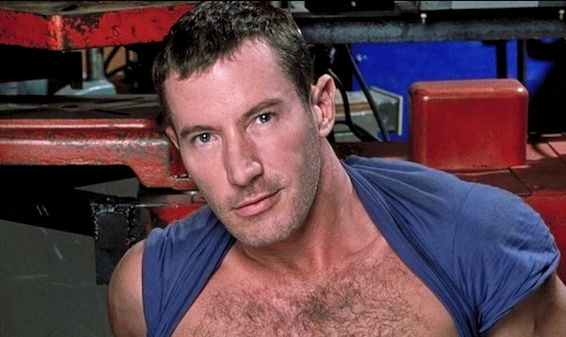 (Click for Full Monty) In 1991, Shaw collaborated with the New York artist Mark Beard to produce a limited edition publication named Aiden. Beard had been sharing a London flat with Shaw at the time. The book included several portraits (mainly nude and semi-nude) of Shaw, with text written by Beard and Shaw (who at that time was still known by his birth name of Aiden Brady). The book documents Mark Beard’s experience of living with Aiden, a male prostitute he met while working in London as a set designer. It consists of Beard’s text, his intimate—sometimes explicit—photographs of Aiden, and Aiden’s own words, interwoven Rashomon-like to reveal the coinciding ties and disconnects between sex and desire. However, it was not until 1996 that Shaw wrote his first novel, Brutal. Also in 1996, The Bad Press published a collection of his poems, If Language at the Same Time Shapes and Distorts our Ideas and Emotions, How do we Communicate Love? He wrote two more novels; Boundaries (1997) and Wasted (2001), and an autobiography, My Undoing (2006) in which he openly discusses his life in the sex industry as a porn star and as a prostitute, his drug addiction (particularly crystal meth), and his HIV status (Shaw was diagnosed HIV positive in 1997). In 2007, Shaw completed an MA in Creative Writing at Goldsmiths University of London, following which he completed a second autobiography, Sordid Truths (2009). Shaw wrote and produced two albums of music, performing lead vocals on "Whatever" with his band of the same name. He also produced performance artist Nina Silvert on "Nina Silvert does Aiden Shaw". In 2011, Shaw trained to become a qualified English teacher. He also modelled for GQ magazine in Berlin. It was in this publication that he was spotted by and signed to Success Models in Paris. He currently resides in Barcelona.
1969 – Clinton Kelly is an American fashion consultant and media personality best known for his role as co-host on What Not to Wear, a reality program that features fashion makeovers. He shares on-air duties with Stacy London. Kelly started his career as a freelance writer for several fashion magazines. Although he still continues to write, he has since expanded into fashion consulting and designing. In 2011 Kelly joined the cast of ABC's daytime cooking show The Chew. Kelly is openly gay, but in comparing What Not to Wear with the show Queer Eye — which pioneered gay men making over people seen as needing fashion advice — the Washington Blade noted some key differences: "Unless you have your gaydar on while watching the show, you would have no idea. There's nothing 'gay' about the show and he doesn't really talk about it on air. Viewers trust Kelly's expertise based on the strength of his choices rather than on the 'he's gay and he should know' fashion theory." In addition to his books and hosting duties on What Not to Wear, Kelly writes a weekly style column for "RedEye" in The Chicago Tribune. He is also a national spokesman for Macy's and has a clothing line through QVC called Kelly by Clinton Kelly. In July 2008, his Extended Tab 5 Trousers sold out in seven seconds. Kelly is married to Damon Bayles. They got married in 2009 at their home in Connecticut
1973 – The California Supreme Court overturns public restroom sodomy convictions because of police surveillance from above in a doorless stall.
Choi is a native of Orange County, California, the son of a Korean-American Baptist minister. Choi was very active with extracurriculars during his high school years. He served as student body president, was on the varsity swim team, and was the marching band drum major. During his senior year, after watching Saving Private Ryan, he decided to attend West Point. Choi graduated from West Point in 2003 with degrees in Arabic and environmental engineering. Choi served as an infantry officer in Iraq with the 10th Mountain Division in 2006 and 2007. In June 2008, he transferred from active duty Army to the New York National Guard. He served as a National Guardsman with the 1st Battalion, 69th Infantry, based in Manhattan. Choi received a discharge letter following his coming out on The Rachel Maddow Show. In response, Choi penned an open letter to U.S. President Barack Obama and the United States Congress. In the letter, Choi challenged the morality and wisdom of Don't Ask, Don't Tell, writing that the policy is "a slap in the face to me. It is a slap in the face to my soldiers, peers and leaders who have demonstrated that an infantry unit can be professional enough to accept diversity, to accept capable leaders, to accept skilled soldiers." Despite his appeal and a Courage Campaign petition signed by almost 162,000 people, on June 30, 2009, a panel of New York National Guard officers recommended that Choi be discharged from the military. As of February 2010, Choi was serving again in his National Guard reserve unit, the discharge having not yet been "finalized". On June 29, 2010, Choi's discharge was finalized. Since Choi's coming out, 38 West Point alumni also came out and announced the formation of Knights Out, an organization of West Point alumni who support the rights of LGBT soldiers to serve openly. Choi was one of the founding members and is the spokesperson for the group. The organization offers "to help their alma mater educate future Army leaders on the need to accept and honor the sacrifices of lesbian, gay, bisexual and transgender troops." Choi has also spoken at numerous gay rights events, including a march in Los Angeles following the California Supreme Court's affirmation of Proposition 8. On May 27, 2009, he addressed a demonstration of gay activists outside the Beverly Hilton Hotel, where President Barack Obama was speaking at a Democratic National Committee fund raising event. In addition, Choi spoke at the 2009 Pride Rally in New York City and served as a Grand Marshal alongside Knights Out in San Francisco's 2009 Gay Pride Parade. In February 2010 Choi was selected to be a Grand Marshal of the 41st Annual New York LGBT Pride March by its producers, Heritage of Pride. At the event, Choi led the Pledge of Allegiance at the New York City Council Chambers. On March 18, 2010, Choi and another ousted military officer, Capt. Jim Pietrangelo, handcuffed themselves to the fence of the White House. They were eventually removed with the use of a master handcuff key and arrested. Choi and Pietrangelo were initially set to be tried for "failure to obey a lawful order" on April 26, 2010. Trial was postponed until July 14, at which time the charges against both men were dropped. On April 20, 2010, Choi and Pietrangelo again participated in a self-chaining protest on the White House fence with Petty Officer Larry Whitt, Petty Officer (Rtd.) Autumn Sandeen, Cadet Mara Boyd and Cpl. Evelyn Thomas. All six were removed with a master hand-cuff key and arrested On October 12, 2010, U.S. federal judge Virginia Phillips ordered the Department of Defense to stop enforcing "don't ask, don't tell". On October 19, Judge Phillips further refused a federal government request to stay the order pending appeal. That same day, Dan Choi went to the Times Square recruiting station in New York to rejoin the U.S. Army. His request is "in process." Following the repeal of "don't ask, don't tell" by Congress, Choi was present at the U.S. Interior Department to attend President Obama's signing of the bill on December 22, 2010. On May 28, 2011, Choi was among a number of both Russian and foreign activists who were arrested by Moscow police when Moscow Pride was held in spite of a ban by city authorities.
1982 – Kimball Allen is an American writer, journalist, playwright, and actor. He is the author of two autobiographical one-man plays: Secrets of a Gay Mormon Felon (2012) and Be Happy Be Mormon (2014). The latter premiered at Theatre Row in Manhattan on September 24 and 27, 2014, as part of the United Solo Theatre Festival. Allen also hosts the recurring Triple Threat w/ Kimball Allen, a 90-minute variety talk show at The Triple Door in Seattle. Secrets of a Gay Mormon Felon is an autobiographical one-man play written and performed by Kimball Allen. In it, Allen reenacts the circumstances of his life that led him from a Mormon childhood through a life of addiction and, eventually, arrest. Allen was born and grew up in Blackfoot, Idaho, a religious, conservative region, and he was one of eight children in an orthodox Mormon family. Even when he was small, Allen's strict Mormon parents were concerned by what they perceived as unusual behavior and mannerisms on his part, and his mother preemptively warned him, "Boys don't kiss boys." At the age of 13, Allen was raped by an older man who befriended him at a mall. To cope with this trauma, which he could not tell anyone about, he surreptitiously turned to alcohol, and eventually drugs. He began living a double life – a devout Mormon on the surface, and underneath a teen struggling with his sexual orientation, the rape trauma, and his growing addictions. Allen's family moved to Utah, the most heavily Mormon state in the U.S., when he was in his junior year of high school. Allen came out to his parents as gay when he was 19. His parents responded that they couldn't support him in that capacity and that they were repulsed by him. According to Allen, coming out as gay in the Mormon community was "committing social suicide", and he has also written that "I grew up gay in a loving, supportive Mormon family. When I came out, that love and support disappeared." In adulthood, Allen's drug addictions spiraled further into cocaine, acid, and E, and eventually into a shopping addiction which led him to crave the high of larger and larger purchases. Given responsibility for a corporate credit card, he accidentally used it for a small expense of his own in 2010, and then started addictively embezzling the company's funds for luxuries via the card. The missing funds, totalling around $70,000, were noticed in 2011, and Allen landed in jail awaiting trial. He went through detox in the jail cell, and out of desperation began journal writing to make sense of how he ended up in that situation. After admitting to his crimes and making reparations, coming to terms with his addictions, and realizing he needed help, Allen continued his journaling during his recovery process. A coherent narrative eventually took shape, and the self-examination eventually became a script, with the additional help of many hours viewing home videos of himself as a child. The completed play, Secrets of a Gay Mormon Felon, premiered in Kansas City in the summer of 2012. It has also run in Honolulu and San Diego. Allen's second one-man play, the one-hour Be Happy Be Mormon, premiered at Theatre Row in Manhattan on September 24, 2014, as part of the United Solo Theatre Festival, and due to the sold-out premiere it had a second performance on September 27. It previewed on September 4 and 5, 2014 in Seattle. It is described as "A voyeuristic look into the childhood of a Bambi-loving vegetarian, ballet slipper-wearing, Diet Coke-drinking gay Mormon Boy Scout." The play relates his upbringing "as a fabulous black sheep" in a Mormon family he doesn't relate to, through "colorful narration, private home movies, songs, dance and the occasional acrobatics". Allen lived for many years in the Capitol Hill neighborhood of Seattle. In addition to his writing, performing, and gay activism, he is a media and PR representative specializing in arts and entertainment. Until March 2015, he was also the aquatics director of Seattle's Meredith Mathews East Madison YMCA. He married Scott Wells in October 2016. As of late 2017, they live in Scottsdale, Arizona. He is an Eagle Scout.

2000 – James Chukwueze Obialor, popularly known as James Brown, is a Nigerian internet personality, dancer and cross dresser who was noted in 2018 following a viral video in which he said the phrase "They did not caught me" following an arrest by the police. He was arrested alongside 46 others for being allegedly gay and spent a month at the Ikoyi Correctional Facility. The case against him was later dismissed by a court. James Brown released a single titled "Hey Dulings" in 2021 after a catchphrase he uses to address his fans on social media. He claims to have been infected with HIV at birth.
2009 – On this date Dustin Lance Black won the Oscar for Best Original Screenplay for his work on "Milk." On accepting the award Black said:
"I
want to thank my mom who has always loved me for who I am, even when there
was pressure not to. But most of all, if Harvey had not been taken from us
30 years ago, I think he'd want me to say to all of the Gay and Lesbian kids
out there tonight who have been told that they are less than by their
churches or by the government or by their families that you are beautiful,
wonderful creatures of value and that no matter what anyone tells you, God
does love you and that very soon, I promise you, you will have equal rights,
federally, across this great nation of ours." (Wild applause from the audience.)
[{(o)}]|[{(o)}]|[{(o)}]|[{(o)}]| [{(o)}]|[{(o)}] |
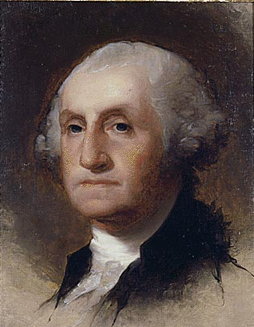

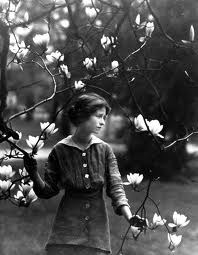
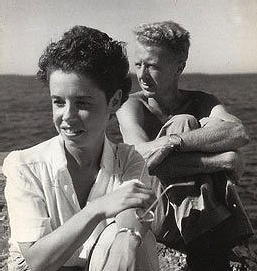 Jane & Paul Bowles
Jane & Paul Bowles